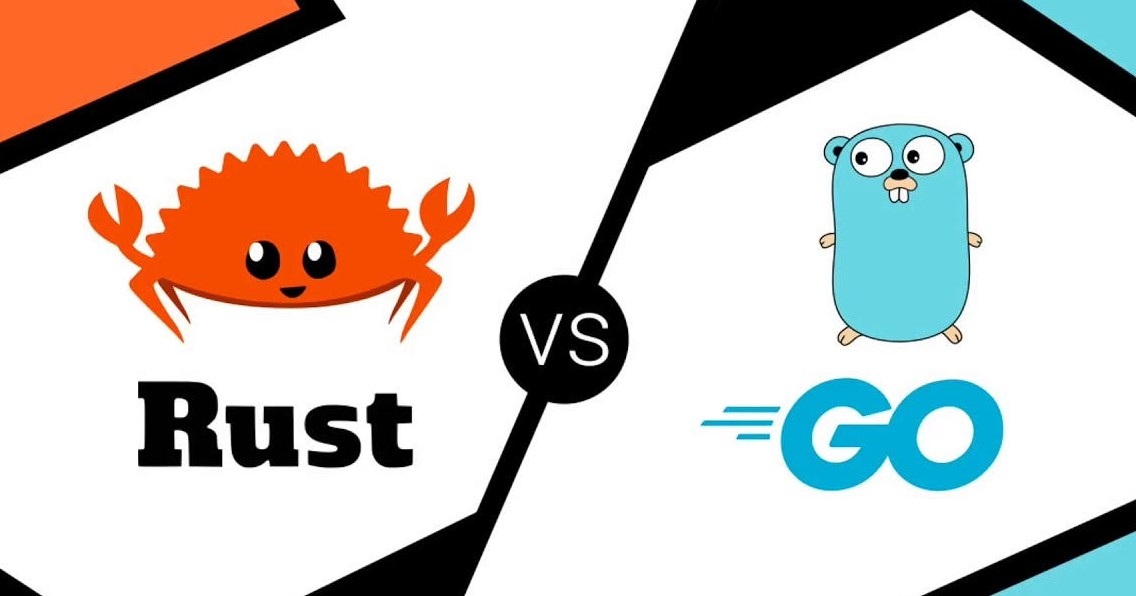Choosing the right programming language is a pivotal decision for any developer or organization. In the ever-evolving landscape of programming, two languages have gained significant attention and popularity in recent years: Rust vs. Go (Golang). Both offer unique features and advantages, and each has its own niche in the world of software development. In this blog post, we will conduct a thorough comparison of Rust and Go, exploring their strengths, use cases, and key differentiators to help you make an informed choice for your next project.
Rust: The System’s Champion
Rust has gained a reputation as a systems programming language with a strong emphasis on memory safety, performance, and reliability. Let’s delve into some of its key attributes:
- Memory Safety: Rust shines in preventing common programming errors, especially those related to memory management, by employing a robust ownership system. This system ensures that memory is managed efficiently without sacrificing safety.
- Performance: Rust allows low-level control over system resources, making it a top choice for performance-critical applications. Its ability to provide predictable and efficient code execution has garnered it attention in industries such as game development and systems programming.
- Concurrency: Rust boasts built-in concurrency support with features like ‘async/await.’ It’s well-suited for applications that require handling multiple tasks concurrently while maintaining a high degree of safety.
- Community Support: Rust has a passionate and rapidly growing community that is committed to maintaining and improving the language. This vibrant community contributes to the development of libraries, frameworks, and tools.
- Use Cases: Rust is an excellent choice for projects where memory safety, performance, and system-level control are paramount. It’s commonly used in areas such as operating systems, game engines, and safety-critical systems.
http://blog.informationarray.com/github-vs-bitbucket-choosing-the-right-version-control-platform/
Go (Golang): The Pragmatic Workhorse
Go, also known as Golang, is celebrated for its simplicity, readability, and efficiency. Here are some of its standout features:
- Simplicity: Go’s clean and minimalistic syntax is easy to read and write, making it an excellent language for developers of all skill levels. Its simplicity reduces the cognitive load on developers.
- Concurrency: Go’s concurrency model revolves around goroutines and channels, making it effortless to write concurrent code. This is a significant advantage for building scalable web services and microservices.
- Ecosystem: Go has a mature ecosystem with a focus on web development, network services, and cloud infrastructure. This makes it an ideal choice for projects that require fast development cycles and robust tooling.
- Community Support: The Go community is known for its pragmatic approach and a strong emphasis on efficiency. This community-driven language has an array of libraries and frameworks available.
- Use Cases: Go is well-suited for web development, building APIs, microservices, and network applications. It excels in projects that prioritize development speed and simplicity.
Making the Choice: Rust or Go?
The decision between Rust and Go ultimately depends on your project’s specific requirements and your team’s expertise. Here are some guidelines to help you make an informed choice:
- Choose Rust if you need fine-grained control over memory, are working on safety-critical systems, or require optimal performance.
- Choose Go if simplicity, readability, and rapid development are your priorities. It’s an excellent choice for building scalable web services and microservices.
- Consider your project’s ecosystem and community support, as both languages have vibrant communities, but they cater to different use cases.
- Evaluate the learning curve: Rust’s ownership system can be challenging for beginners, while Go’s straightforward syntax is welcoming to new developers.
Unlocking Mobile Potential: The Power of Software Development Kits (SDKs)
Here are some FAQS based on Rust and Go
Is Rust better than Go?
The choice between Rust and Go depends on your specific needs. Rust excels in systems programming, memory safety, and performance-critical applications. Go, on the other hand, is well-suited for web development, microservices, and simplicity. The better option depends on your project requirements and familiarity with each language.
Should I learn Golang or Rust?
The choice between Go (Golang) and Rust depends on your goals. If you want to develop web applications, microservices, or work on projects with a mature ecosystem, Go is a great choice. If you’re interested in systems programming, memory safety, or performance-critical tasks, Rust is an excellent language to learn.
Is Rust replacing Go?
Rust is not necessarily replacing Go. Both languages have their own niches and strengths. While Rust is gaining popularity in systems programming and safety-critical applications, Go remains a top choice for web development and microservices. They coexist and serve different purposes in the programming world.
Why is Go more popular than Rust?
Go’s popularity can be attributed to its simplicity, strong support for concurrent programming with goroutines, and a mature ecosystem for web development and microservices. Additionally, Go was created at Google, which contributed to its rapid adoption. Rust, while growing in popularity, has a steeper learning curve due to its memory safety features and complex ownership system, making it a specialized choice for certain domains.
In the dynamic world of programming, both Rust and Go have carved out their niches, and each offers distinct advantages. Rust is a powerful choice for system-level programming, memory safety, and performance, while Go is a pragmatic language ideal for web development, microservices, and rapid development cycles. By understanding the unique strengths of each language and assessing your project’s specific needs, you can make an informed decision that will pave the way for a successful development journey.

